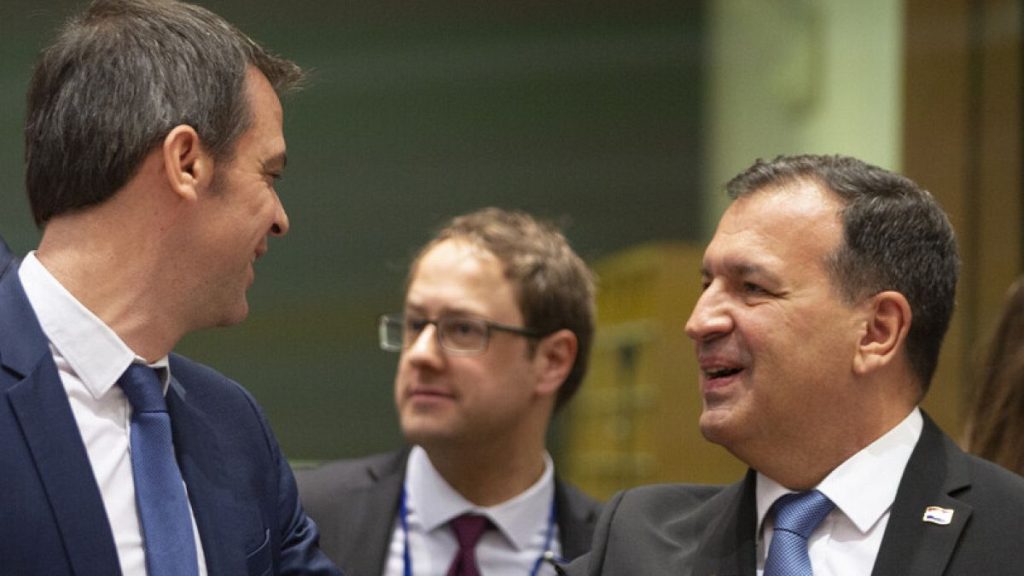Eight individuals and two companies in Croatia are being investigated by EU prosecutors for alleged bribery, abuse of authority, and money laundering. This investigation led to the arrest of Health Minister Vili Beroš, who was subsequently fired by Prime Minister Andrej Plenković. The suspects, including Beroš and the directors of two hospitals in Zagreb, are accused of accepting and giving bribes, abusing their positions and authority, and engaging in money laundering. Plenković stated that his government would not protect anyone suspected of criminal acts and expressed his shock at the corruption within the health system, calling it a particularly sensitive department.
The European Public Prosecutor’s Office (EPPO) revealed that five of the suspects had collaborated since June 2022 to secure “undue financial gains” for two companies by manipulating the public procurement process to exclude competition and inflate prices for medical robotic devices. The criminal group allegedly gave bribes to officials, including the minister of health and hospital directors, to secure contracts, some of which were funded by the EU or Croatia’s national budget. Beroš is implicated in approving the purchase of microscopes in Zagreb hospitals at inflated prices in exchange for a bribe. Croatia has a history of systemic corruption, and international anti-graft organizations often rank it as one of the most corrupt countries in the EU.
The State Attorney Ivan Turudić criticized EU prosecutors for not informing Croatian authorities about the investigation, stating that he would determine who was responsible for the case. The EPPO suspects Beroš of receiving bribes, while Croatian investigators are accusing him of a lesser crime known as “influence peddling”. Two other individuals have been arrested, and one legal entity is under investigation for allegedly receiving a bribe. The investigation points to a larger issue of corruption within the Croatian health system, highlighting the need for transparency and accountability at all levels of government.
Croatia’s government, led by Plenković, has pledged to cooperate fully with the investigation and ensure that those involved in criminal activities are held accountable. The Prime Minister emphasized the importance of combatting corruption in a country where it has been a longstanding issue. Plenković’s decision to dismiss Beroš reflects a commitment to upholding the rule of law and maintaining public trust. The investigation sheds light on the challenges of combating corruption within the public health sector and the importance of ethical governance practices to protect taxpayer funding and ensure the delivery of quality healthcare services.
The allegations of bribery, abuse of authority, and money laundering highlight the need for stronger anti-corruption measures in Croatia and across the EU. Addressing systemic corruption requires a concerted effort from both national and EU authorities to investigate and prosecute those involved in illegal activities. Transparency, accountability, and ethical conduct must be prioritized to prevent future instances of corruption and ensure that public funds are used responsibly and for the benefit of citizens. The case serves as a reminder of the importance of upholding the rule of law and rooting out corruption to uphold democratic values and protect public institutions from undue influence and exploitation.


